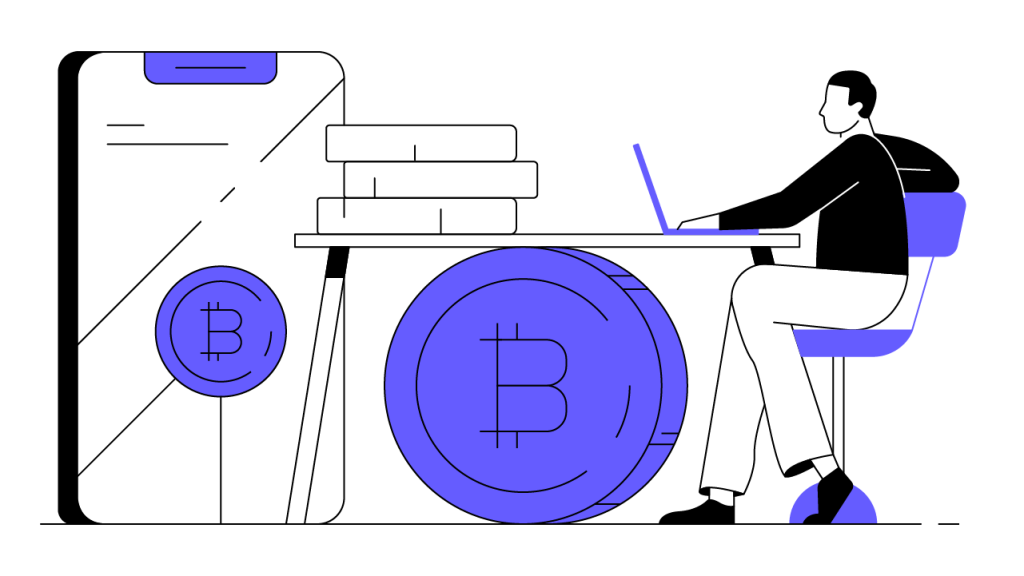Contents
How Can I Buy Bitcoin?
Buying bitcoin on a cryptocurrency exchange can be as easy as placing an order through an online brokerage account.

Summary
With blockchain technology continuing to move toward mainstream adoption, the number of investors seeking to invest in and other cryptocurrencies is on the rise. If you are interested in buying bitcoin — and especially if you’re a beginner — here’s a guide to your options for buying bitcoin and other : how to trade and hold (or as the crypto community says, “HODL”) them, and how to store them more safely.
Check out
Buying Bitcoin 101
1. What is Bitcoin, and how does it work?
is a digital currency on a decentralized blockchain. It enables peer-to-peer transactions without banks. Mining creates new Bitcoins, and transactions are verified on the blockchain.
2. How can I buy Bitcoin?
The easiest way to buy Bitcoin is on . Create an account, verify your identity, link a payment method, and place an order at the current market price.
Unlock the future of money on Gemini
Start your crypto journey in minutes on the trusted crypto-native finance platform
3. How much does Bitcoin cost, and can I buy a fraction of a Bitcoin?
can be volatile. You can buy fractions; it's divisible into smaller units called , making it accessible to all investors.
4. Do I need technical knowledge to buy and use Bitcoin?
No, you don't need extensive technical knowledge. Cryptocurrency exchanges and providers offer user-friendly interfaces.
Crypto Exchanges: How to Buy Bitcoin Using an Exchange
One of the easiest and safest ways to buy is by creating an account on a reputable like . Crypto exchanges allow users to buy, sell, and store their cryptocurrencies. The process of funding your account and making a purchase is very similar to that of a traditional online financial exchange or brokerage account. Crypto exchanges typically charge a fee for each order you place and at the time you withdraw your funds, and most exchanges publicly disclose their fee structure for the sake of transparency. Below are the basic steps for purchasing on a crypto exchange:
Choose a : When choosing a crypto exchange, it’s important to understand which exchanges can legally operate within your local jurisdiction and to use one of those platforms. A reputable exchange will cite this and other important details on its website, which can include but are not limited to its hours of operation, contact information, fee structure, regulatory oversight, and other essential disclosures and documentation.
Furthermore, each crypto exchange has different policies and requires different levels of procedures. KYC is a compliance process outlined and instituted by regulators that requires financial services companies and other businesses to verify the identity of their customers. As with opening a bank account, when you start an account with a crypto exchange, typically you’ll need to supply an official form of identity verification like a passport, driver license, or another type of government ID. Other necessary documentation may vary according to the mandates of each state or individual company. So, be prepared to follow through with the specific KYC requirements of your crypto exchange of choice.
Connect your account to a payment option: After you’ve gone through KYC procedures and created an account, the next step is to fund your account by linking it to a payment option like a debit card or bank account. Significantly, not all exchanges have fiat on- and off-ramps. In other words, while some exchanges might let users buy cryptocurrencies using — like the U.S. dollar — other exchanges allow crypto-to-crypto trades only. If you want to buy Bitcoin using fiat, select an exchange like that supports this feature. Furthermore, each exchange has different fees and fund settlement times that could affect how you’d choose to fund your account. Therefore, it’s important to do the proper research and choose a payment option that best suits your personal needs and investment style.
Place an order: Once you’ve linked your account to a payment option, you may purchase bitcoin and other cryptocurrencies. Most crypto exchanges offer familiar order types, such as , though some exchanges have more advanced features than others.
Alternative Ways to Buy Bitcoin: ATMs and DeFi Exchanges
Although are by far the most common way to buy bitcoin and other cryptocurrencies, it’s also possible to buy bitcoin at specialized ATMs and via peer-to-peer (P2P) such as , , and . However, finding bitcoin ATMs can sometimes be challenging, as they are not nearly as ubiquitous as traditional ATMs. And, interacting with DeFi protocols generally requires some degree of technical knowledge or familiarity with these platforms, which could present a challenge for new entrants to the crypto space.
I Bought Bitcoin. Now What?
Once you’ve bought bitcoin, what you do with it is entirely up to you. Some investors immediately trade it on other cryptocurrencies, while others prefer to keep their bitcoin in their or withdraw it to their for self-custody. Whether you choose to trade or “” your bitcoin, following best practices when you create your cryptocurrency exchange account or manage your hardware will go a long way toward ensuring your investment’s safety.

Author
Is this article helpful?
